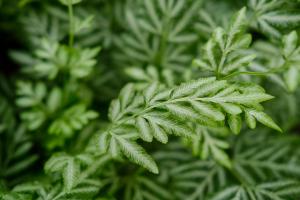Do you water plants in fall?
Fall is a beautiful season with pleasant weather and colorful scenery. It is also a crucial time for plants to prepare for the upcoming winter. Many gardeners wonder if they should continue to water their plants during this time. The answer is: it depends.
Factors to consider
The main factor to consider when determining whether to water plants in the fall is the climate. In areas where the weather is dry and warm, plants will require more water to survive. In contrast, areas with cooler temperatures and higher humidity levels will require less water. The type of plant also plays a significant role in how much water it needs. Certain plants, such as succulents, can tolerate long periods without water, while others like ferns require consistent moisture.
Timing is key
The best time to water plants in the fall is early in the day. Watering in the evening can cause the plant to remain damp overnight, which can lead to fungal growth and disease. Late afternoon watering is also not advisable as it can cause the plant to lose too much water due to the hot sun. It is essential to water plants deeply, but not too frequently, to allow the roots to grow deep and establish a good foundation for the winter.
Consider mulching
Mulching is an excellent method to help your plants retain moisture during the fall. Applying a layer of mulch around the base of your plants can help them conserve water, stay warm, and prevent weeds from growing. Mulch also helps to enhance the soil structure, which is essential for the growth and development of the plant's root system. However, it is essential not to over-mulch as it can cause the soil to become waterlogged and prevent air from reaching the roots.
Watch for warning signs
Observing your plants for any warning signs is crucial to keep them healthy during the fall. If the leaves start to wilt or turn yellow or brown, it may be a sign of drought stress or overwatering. If that happens, it is essential to adjust your watering schedule accordingly. Similarly, if you notice any signs of fungal growth, it is essential to address the issue promptly to prevent the spread of disease.
Conclusion
In conclusion, whether or not to water plants during the fall season depends primarily on the climate, type of plant, and soil condition. Gardeners must understand these factors and observe their plants for any warning signs to ensure they receive the proper care. By following the tips outlined in this article, you can help your plants survive the fall and prepare them for the upcoming winter season.

 how many times do yo...
how many times do yo... how many planted tre...
how many planted tre... how many pine trees ...
how many pine trees ... how many pecan trees...
how many pecan trees... how many plants comp...
how many plants comp... how many plants can ...
how many plants can ... how many plants and ...
how many plants and ... how many pepper plan...
how many pepper plan...
































